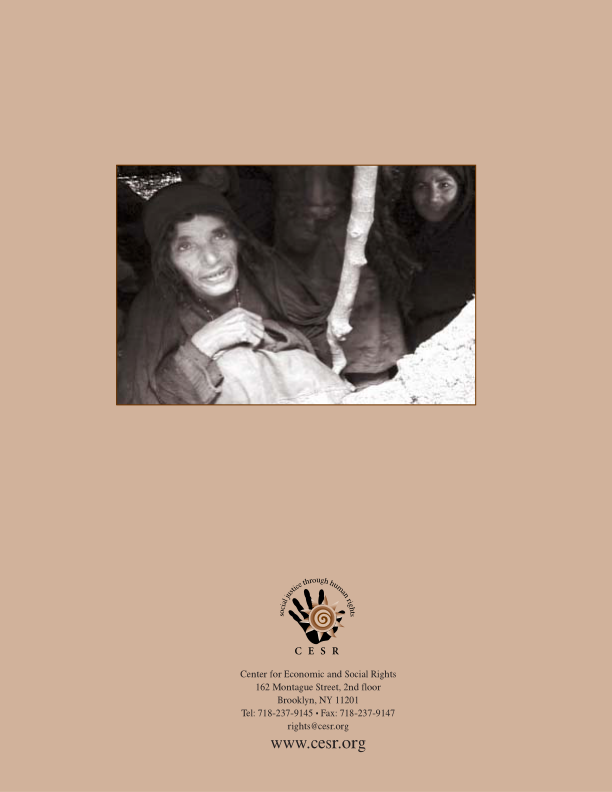Kabul, Afghanistan – The Center for Economic and Social Rights (CESR) is today releasing a report, Human Rights and Reconstruction in Afghanistan, about the growing human rights crisis in Afghanistan. In the report, 135 Afghans and 42 international aid workers express their concerns about the gap between international rhetoric on human rights and the reality of increasing violence and instability throughout the country. Omar Zakhilwal, a member of CESR’s assessment mission and a delegate to the Loya Jirga, will present the findings and recommendations at the historic gathering of 1,501 Afghan representatives.
Dr. Zakhilwal, a professor of economics in Canada, said, “This report shows that Afghans simply want what all other people want – to make human rights meaningful in their daily lives. We are still suffering from hunger, poverty and violence. It is our duty at this Loya Jirga to raise these human rights concerns and demand that the international community fulfill its many promises and commitments.”
In the report, Afghans from urban areas ranked peace and security (57%) as their top human rights priority followed by work (16%) and education (12%). For rural residents food security was most important (42%) and then peace and security (29%) and education (12%).
Many respondents expressed anger that the United Nations was allowing warlords to return to power without facing accountability for past and even ongoing human rights violations. The United States was singled out for continuing to arm warlords while blocking the expansion of peacekeeping forces to outside of Kabul. A villager in Nangarhar asked, “If the US can defeat the Taliban, why can’t they disarm the warlords? If the US believes in democracy, why support these warlords in Kabul?” Similar concerns were echoed by international aid workers in Afghanistan. According to a senior UN official, “This is becoming a familiar pattern – the US makes a mess of things and the UN is forced to come in an clean up, but without the political or military muscle to get the job done.”
Afghan respondents typically viewed international assistance as a matter of obligation rather than charity. A tribal elder declared, “Before talking about reconstruction, first stop the destruction. We want what we had before – our homes, our roads, our farms. Rebuilding what you have destroyed is not something you do for us. That is your duty as a human being.”
The report offers a number of concrete policy recommendations, including:
- Allocate sufficient political and financial resources to strengthen the UN’s human rights office and support local human rights organizations in Afghanistan.
- Undertake a comprehensive human rights needs assessment to ensure that reconstruction programs are based on Afghan views and priorities.
- Train UN agencies to incorporate human rights in all development programs, with priority on addressing the needs of vulnerable social groups.
- Launch a major disarmament program linked to rural development jobs for demobilized soldiers.
- Launch a national human rights education campaign starting at the community level.
- Establish an independent Afghan research institute to monitor human rights compliance by government and UN authorities in the reconstruction.
- Separate US military policy from international reconstruction policy and extend international peacekeeping forces beyond Kabul.
Roger Normand, CESR Executive Director and main author of the report, said, “The Loya Jirga and the current political transition represents an historic opportunity for the international community. We must take seriously the Afghan consensus in favor of human rights. We must move from rhetoric to reality by ending support for abusive military leaders and instead ensuring full Afghan participation in the reconstruction process. This is not just a matter of good policy. It is basic international law.”
The report was funded by the Senior Human Rights Adviser’s Office at the UN, the Ford Foundation, and the Methodist Board for Global Justice. The 72-page report can be downloaded here.
